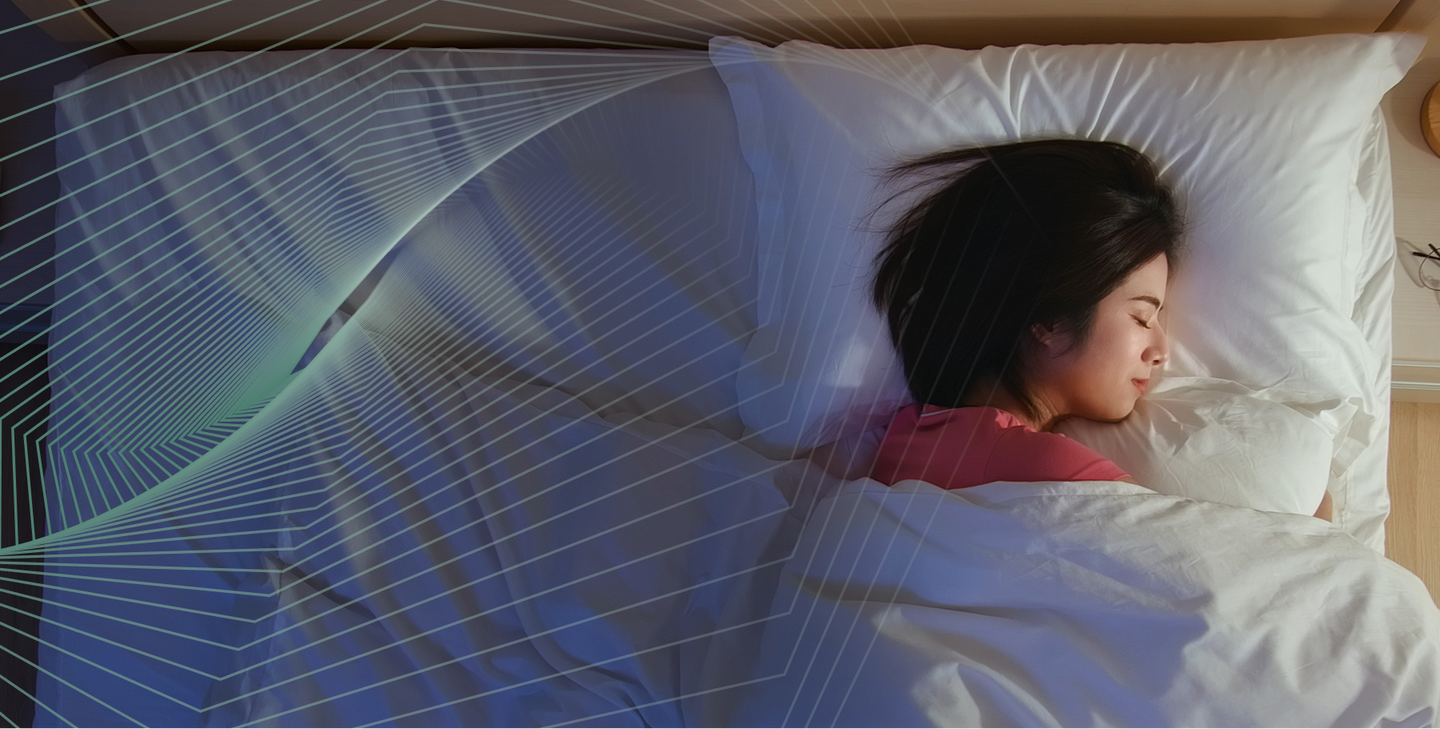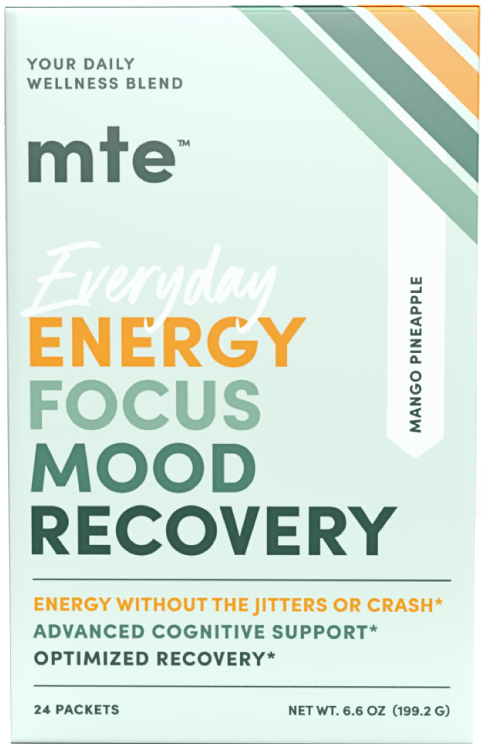
The Power of Sleep: Are You Getting Enough? (Probably Not)
Everybody needs a good night’s sleep. It directly affects mental and physical well-being day-to-day, but also cumulatively over time, which is why committing to sleep is one of the best health investments one can make. Yet somehow, we still exist in a society where lack of sleep is a badge of honor, while getting consistent sleep is often misconstrued as laziness or lack of motivation. Really?
In 1942 less than 8% of the population had to survive on six less hours of sleep a night. Today, two-thirds of adults in high-income countries do not sleep 8 hours, and nearly one in two are trying to survive on six hours or less of sleep a night.
What changed? Longer hours at work. Longer commutes. More non-productive pursuits like consuming 24-hour news, bingeing your favorite comfort show, and scrolling social media. No shade. These all fuel the problem and are magnified by the modern-day attitude that getting a lot of sleep means you’re a sloth. We want to seem busy and important, and somehow that has been equated to sleep deprivation.
So. Let’s look at all our sleepiness trauma and work through it – because there’s a path for everyone to getting great sleep at night and absolutely killing it at life during the day. It’s all about priorities and having the right tools to get you there.
The Statistics on Our Sleepless Society
Did you know humans are the only species that deliberately deprive themselves of sleep for no apparent reason (other than trying to seem busy and important). What should we call it? Toxic hegemonic… exhaustion?
An estimated 50-70 million US adults suffer from sleep problems. The most common issues reported are sleep apnea, restless leg syndrome and insomnia. While sleep problems affect every demographic, they are disproportionate among minorities and underserved populations, something you can easily see on the CDC’s sleep maps.
Whether health-related or because of work schedules, it seems like at least a quarter of us aren’t getting satisfactory sleep at least 1 out of every 2 nights. That number is much higher among specific groups, such as Black/African Americans at 43.5% self-reported short sleep, and 47% self-reported short sleep among Native Hawaiians and Pacific Islanders.
The fact that we’re all living our lives tired isn’t just dangerous on a think-of-yourself level; this mass-exhaustion affects our entire society:
- Drowsy driving is a factor in at least 20% of serious vehicle accidents.
- Untreated sleep disorders cost over $100 billion each year in lost productivity, medical expenses, environmental damage, sick leave, etc.
- Sleepiness may be a factor in 22% of car crashes and 16% of near-crashes.
- Trends in insufficient sleep correlate with increases in workplace accidents.
Did this article just become a PSA?
The Statistics on Your Sleepless Self
Okay, but now we are going to think about ourselves, because the havoc sleep deprivation wreaks in your mind and body is a microcosm of all those car accidents. Your circadian rhythm keeps everything running on schedule – literally. So when that rhythm is messed with, a cascade of systems fall out of whack, often beginning a vicious cycle of exhaustion and sleeplessness.
Just one night of five hours sleep or less, your body’s production of cells that attack cancer drops by 70%. If you’re over 45, and you sleep 6 hours or less you are 200% more likely to have a stroke or heart attack, while your risk of getting any sort of infection nearly doubles.
These statistics make a lot of sense when you learn that the day after we lose an hour of sleep in the spring for daylight savings time, there is a 24% increase in heart attacks. Conversely, the day after daylight savings time in the fall, when we all gain an hour of sleep, there is a 21% reduction in heart attacks the following day.
Deprived of Sleep = Deprived of Wellness
Sleep deprivation is much more than just being tired or drowsy. There is a direct correlation between sufficient sleep and energy, productivity, emotional balance, immune response, and weight. Perhaps more jolting, continued sleep deprivation also increases the risk of stroke, high blood pressure, neurodegenerative conditions, and certain cancers.
We feel hungrier when short on sleep as our body’s production of leptin, the hormone that signals satiation, is significantly reduced. Meanwhile production of the hunger signaling hormone ghrelin is significantly increased. The net effect leaves us hungrier, but with less ability to satiate the hunger.
Chronic poor sleep also affects the way your metabolism functions, making you more likely to gain weight. Combine this with some of the mental pitfalls of sleep deprivation such as being more prone to reactivity and anger, and you have a recipe for a bad day. The true meaning of hangry.
Psychological Conditions Associated with Sleep Deprivation
Okay, if we’re working at about 25% of US adults complaining about sleep deprivation, psychiatric patients blow that out of the water. 50-80% of patients in your average psychiatric practice have chronic sleep problems. Sleep problems are commonly associated with:
- Attention deficits
- Mood dysfunction
- Emotional dysregulation
- Disordered eating behaviors
- Trauma and stress-induced conditions
Chronic sleep duration/quality deficits that cause you to miss those ever-important 4-stage sleep cycles can also cause:
- Forgetfulness
- Impulsive behavior
- Irritability
- Psychotic episodes (in extreme cases)
- Short term memory issues
- Tiredness
Just as physical symptoms of sleeplessness cause a vicious cycle, so, too, do the mental symptoms. For instance, the aforementioned maladies not only contribute to sleeplessness, but are also exacerbated by sleeplessness. As you can see, chronic poor sleep affects a lot more than just how you feel the next day; it hurts your mind and body health in very real ways with the potential for very permanent consequences.
So, How Much Sleep Do We Really Need?
It varies. Maybe not as much as you might think though. The average adult needs 7-9 hours of sleep a night, but quality of sleep matters, because certain sleep stages are crucial to the physical and mental restoration your body performs at night.
Drinking alcohol close to bedtime isn’t recommended; even though it’s a nervous system depressant, it doesn’t facilitate a healthy sleep cycle. On the other hand, some plants and herbs like cannabis and valerian root may help you fall asleep faster and sleep more peacefully.
Some other tips to help ensure quality sleep include prioritizing bedtime over, say, watching a TV show or staying up to watch the end of the game. Also, remove technology from the bedroom. The blue light from electronics can trick your brain into thinking it is still daytime, which will make it more difficult to fall asleep.
In addition, you should get regular exercise, avoid caffeine later in the day, sleep in the darkest environment possible, avoid naps, keep on a regular schedule of bedtime, and try to sleep in a cool room (65-67 F is ideal).
MTE Supports Sleep Health Fundamentals
Sleep it tops – it’s the foundation of wellness. Think about it – does your phone keep working if you never charge it? Does your car engine run without refilling the gas tank? Will Windows ever let you update your laptop without turning it off and then back on again?
A priority in our product development was to create a wellness supplement that promotes energy, focus and productivity while also supporting sleep health. Caffeine and stimulants do the first part, but they harm sleep quality by disrupting the chemical processes that signal it’s time to go to bed and stay there.
Our proprietary blend of adaptogens, nootropics and superfoods fight the effects of stress and exhaustion by promoting balanced bodily functions, including immunity, inflammation, mood, energy, and more. To accomplish all that, we’ve gotta support sleep first! Here’s how our pared down energy drink multiplies your body’s exhausted resources:
Sleep-Supporting Ingredients in MTE
Ashwagandha: This adaptogen’s scientific name literally includes the word “sleep-inducing” (somnifera). Known to protect the mind and body from the effects of stress, studies also say ashwagandha supports better sleep quality, duration, and efficiency, as well as reduce the time it takes to fall asleep.
GABA: A nootropic, amino acid and neurotransmitter, GABA is the body’s main neurochemical signaler to calm down. It’s actually a common health supplement for chronic sleep problems. Taken as a bedtime supplement, it’s shown an ability to reduce time it takes to fall asleep.
Holy Basil: Also referred to as the Tulsi adaptogen, this ancient plant that is, in fact, not a basil, fights the things that damage sleep health, mainly stress and mood. In research exploring holy basil’s benefits, improvements in mood, stress ratings, and biological stress markers were associated with improvements in sleep.
L-theanine: A nootropic compound found in several types of tea plants, theanine offers several bioactive benefits, and one of them is aid in nightly recovery. Studies indicate it balances critical excitatory and inhibitory neurotransmitters to improve sleep quality and reduce sleep latency, especially in people with chronic sleep problems, whether sleep disorders or symptoms of other mental health challenges.
Saffron: Is there anything this nootropic superfood can’t do? Recent studies have shown that saffron supplementation contributes to improvements in time spent in bed, easier time falling asleep, less sleep disruptions, and better perceived sleep quality.
Starting Your Journey to Better Sleep
How to get started now? Be honest with yourself and make it a priority. Your life literally could depend on it. Start small. If you sleep 6 hours a night, try to go to bed 15 minutes earlier every few nights. Get comfortable with that, and then keep trending that way until you are getting a full night’s sleep every night.
Sleep when it is colder and darker and wake when it is warmer and brighter. In other words, follow the pattern of the sun. Being a night owl is usually not a good thing, because you are not an owl. In addition to these healthy habits, MTE can serve as a daily support for nightly recovery.
You will likely notice higher energy, more vitality, greater ability to fight disease, greater ability to fend off cold and viruses, greater ability to control your appetite and your anger, less reliance on caffeine, and you won’t be walking around all day tired. Your wellness starts with you!



